Ascertia provides a fully integrated suite of Digital Trust products that enable TSPs, government and enterprises to deliver digital identities and signatures that are compliant with standards and regulatory requirements.
Here is a summary of the latest product capabilities we’ve introduced over the past quarter – these developments further enable secure, compliant and efficiency delivery of trust services at scale.
ADSS Server

Service Plan Management
Enterprises and trust service providers can now create and manage service plans for each connection to ADSS Server via client manager.
This new capability provides a structured and scalable way to deliver and manage digital trust services across multi-tenanted deployments, helping to support a wide range of user groups, business applications and customer needs.
Service plans help define which ADSS Server services from ADSS Server a client can access, the volume of transactions available and the timeframe. This gives clients clear oversight of how services are being consumed and supports accurate internal and external billing.
ADSS Server combined with Web RA Server
Local QSCD/Smartcard Management
Many enterprises and Trust Service Providers continue to rely on cryptographic smartcards and USB tokens to generate and store users credentials to support digital signature, authentication and encryption use cases.
For Qualified Trust Service Providers (QTSPs), there is often a requirement to enforce strict policies over the type of smartcard or token clients use to create their qualified digital certificates.
Updated compliance with the latest CA/B Forum Baseline requirements
Compliance with the latest CA/B Forum Baseline Requirements is essential for trust service providers operating within the public PKI ecosystem. These updates ensure alignment with evolving industry security standards and help mitigate legal and operational risks.
Ascertia ADSS Server and Web RA provide TSPs with a turnkey solution that provides tools to issue and manage digital certificates for public trust use cases that include EV, OV, and DV TLS, Code Signing, and S/MIME and support certificate Transparency.
ADSS Server introduces the ability to provide certificate linting as part of the issuance process; this helps TSPs reduce the risk of a certificate being issued that is not compliant with the baseline requirements and would otherwise result in a non-compliant certificate being issued.
In addition, Web RA has been extended to add support for Certificate Authority Authorization (CAA) checks to now also be performed as part of the issuance process for S/MIME certificates; CAA is a DNS mechanism that allows domain owners to control and restrict which CAs can issue certificates for their domains.
SigningHub

Mobile app
February saw the release of the new SigningHub mobile app, giving on-premise customers and Partners access to the full suite of products for the latest evolution of SigningHub. The new app ensures complete feature parity with the web app and native mobile app, meaning users can access the same SigningHub functionality regardless of device.
It also supports remote signature authorisation servers and introduces a refreshed, responsive design to enhance the user experience - whatever the screen size. This latest evolution of the SigningHub platform enables a consistent and professional signing experience for users on the move without compromising on security or control.
SmartForms
The latest update to SigningHub also introduces SmartForms, enabling document owners to generate secure web links to documents. This feature is designed to streamline the collection of information and document signing in common “one-to-many" scenarios, such as signing a standard NDA or a new service subscription.
Documents can be shared as a URL or embedded into a website rather than sending an email or SMS notification to a specific workflow participant. Signers can then access and sign documents via the URL. Additional configuration settings are available for access and usage controls, and allow for counter-signing or approvals as required.
Additional iFramed components for API users
Developers looking to integrate SigningHub functionality in their applications can now use iframe to embed additional SigningHub components securely into their business applications for even better control over user experience and branding.
Newly supported iFramed components include authentication and registration, the dashboard, document list viewer and folders, document upload, workflow creation and document preparation. This expanded integration capability ensures that SigningHub can be embedded more deeply into customer and partner applications, improving usability while maintaining trust and security standards.
eID Easy connector upgrade
The existing eID Easy connector has been upgraded to include Advanced Electronic Signatures (AES), alongside Qualified Electronic Signatures (QES). This enhancement gives customers access to additional eID signing methods within the EU and trusted remote signing services from beyond the EU. By offering greater flexibility in signing method selection, this update helps organisations meet varying legal and business requirements across regions and use cases.
Ready to explore what’s new?
Whether you’re a trust service provider expanding cross-border services, an enterprise streamlining digital identity management, or a partner integrating secure signing into your app—Ascertia’s updates are designed to deliver more value, compliance, and efficiency.
Looking for additional information on an Ascertia product? Contact our team today.


